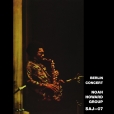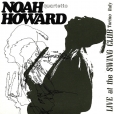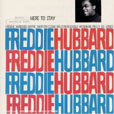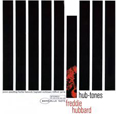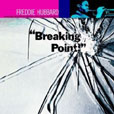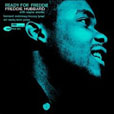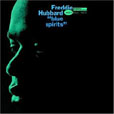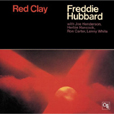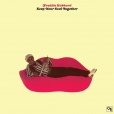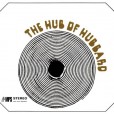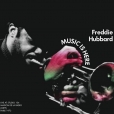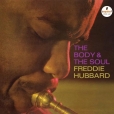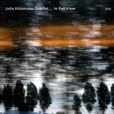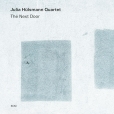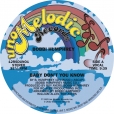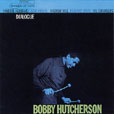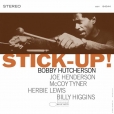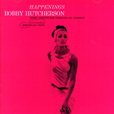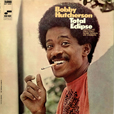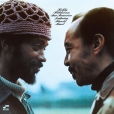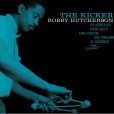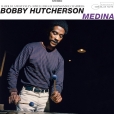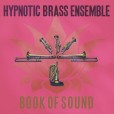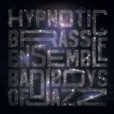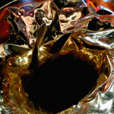Your basket is empty

With Michael Smith on piano, Noel McGhie on drums, and Bob Reid on bass, in April 1974; originally released by Calumet Records.
‘Classic vinyl.’
In the ‘Blue Note Classic Vinyl’ series.
‘Audiophile analogue remastering.’
The trumpeter in peak form, leading a crack band through extended versions of CTI killers like Povo and First Light.
Kent Brinkley and Michael Carvin from Hugh Masekela’s band; George Cables from Child’s Dance and Capra Black; Horace Silver’s saxophonist Junior Cook, playing with surprising intensity.
Recorded in 1973 for French radio.
For Michael Carvin — who in the next couple of years would play on Pharoah Sanders’ Elevation LP, and Lonnie Liston Smith’s Expansions — the session was something else: ‘I felt that we were being used by a higher force. That’s the first time we played that way, and it was the last time we played that way. We actually got the lightning in a bottle, we caught the magic… we caught it.’
Aged 25, signing off Impulse! with a wayward flourish, Hubbard plays beautifully throughout, boldly leading an orchestra and string section, 16-piece big band, and a septet with Curtis Fuller, Eric Dolphy, Wayne Shorter, Cedar Walton, Reggie Workman, and Louis Hayes. Shorter is arranger and conductor. Buckle up for Dolphy flipping his wig in Clarence’s Place.
‘Verve By Request.’
‘Her unique pianistic voice in a varied programme of almost exclusively original music, composed by herself and her colleagues – tenor saxophonist Uli Kempendorff, Marc Muellbauer on double bass and drummer Heinrich Köbberling. A deep respect for the jazz tradition, especially the post-bop and modal jazz of the 60s, permeates this session, and with the quartet’s modern twist, the stage is set for highly expressive soloing and profound interplay.’
Her 1982 collaboration with Roy Ayers — classic disco boogie. One side is a full vocal; the other a flute-led instrumental, beefed up for the dancefloor by Ayers, at the mixing desk .
His first quartet session as leader — with Herbie, Joe Chambers and Bob Cranshaw. Seven BH originals and Maiden Voyage. A kind of breather, in amongst his experiments at this time; relaxed, gorgeous and atmospheric, with brilliant playing.
Warmly recommended.
‘Classic Vinyl series.’
From 1969, this first collaboration with Harold Land — questing but chilled post-bop — is probably the best.
Steeped in the compositions of Joe Chambers, the closer Pompeian is a tour de force; opening as a waltz, detouring into moody marimba.
From 1969, with Harold Land, Stanley Cowell, Reggie Johnson, and Joe Chambers, coolly charting a path all their own, out of the tumultuous decade.
“We started with a cosmic idea that we were taught from a very young age – that the stars and planets make a sound, that deep in outer space there is audible harmony.”
Book Of Sound is the brilliant, richly resonant exploration of these interstellar low ways. By turns urgent and contemplative, funky and reflective; varied in its textures, but entirely of one piece. Underpinned by cosmology, held in place by meditation, swirling with notions of history, science, theology, ancestry — this is a heady conceptual brew. But the music speaks loudest: ‘the sound of surprise’, magnificently retrieving Spiritual Jazz from the knacker’s yard.
It’s a deeply Chicagoan record. “It’s got the vibe of the lake,’ continues trombonist Cid, “the vibe of the prairies opening up to the west.” Also the Sun Ra albums recorded there in the 1950s, and — of course, being the dad of all seven ensemblists — Phil Cohran’s wonderful albums from the 1960s.
“You know, it’s tough trying to satisfy everybody with our music. It’s hard enough satisfying ourselves, let alone the jazz scene, the hip hop guys, what have you. With this album we just dropped all that as a consideration, and tuned into deeper principles.”
Celebrating the twentieth year of ensemblehood, BBOJ delivers the band’s signature, funked-up melange of soul, afrobeat and hard riffing jazz. Or, as they call it, ‘now music’. Featuring the humdinger title track of last year’s EP, In The House, this is, as always, uplifting as hell.
Tear-up bad-boy brass-band scorchers. Just like dad crossed Sun Ra with Kool And The Gang, this crashes funkdafied New Orleans street jazz into hip hop. With Flea, Damon, Tony Allen, Malcolm from The Heliocentrics.
